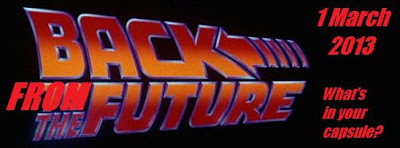Ask the Acquisitions Editor: Manuscript Turn-ons & Turn-offs #amediting
CK Wagner is back to answer more of your acquisitions questions. CK is an acquisitions editor at Omnific Publishing (yes, the Omnific Publising that just signed a sweet deat with Simon & Schuster). For previous Ask the Acquisitions Editor posts, see:
And now we get down to today's nitty gritty regarding manuscripts.
Jackie: You've read the first chapter of a manuscript... what makes you want to keep reading and what would make you pass?
CK: We’re always looking for something fresh and non-formulaic. If we feel like a story’s premise or voice doesn’t offer anything new or intriguing, it’s risky to take a chance on; so much goes into bringing a book into being that it has to be worth everyone’s time and effort. We’re even less inclined if we can’t authentically connect to the protagonist and situation straight away due to shallow character and conflict development. One-dimensional characterization is unrealistic and unsympathetic—even more so without clear signs of growth and rising tension. The most difficult stories to finish are those with flat character/story arcs.
Crystal: What turns you off fastest about a submission? What are the big red flags you watch for?
CK: To start with the basics, frequent spelling and grammar mistakes truly hinder the comprehension and enjoyment of a story. It could be a great concept and well-written otherwise (stylistically and developmentally), but an unpolished manuscript tells us that someone was too eager to dash the story out and send it off to earnestly value the integrity of his/her work. The same goes for awkwardly phrased or superfluous content—that trips up the flow or drags down the pacing, and the reading becomes tedious. I’m not saying submissions should already be professionally edited—we expect to tackle this stuff in our editing process—but a good first impression is easily achieved through diligent proofreading, by you and at least one other set of eyes.
LD: What is your number one turn off, something that would make you stop wanting to read on?
CK: I think my biggest turn-off is immaturity in style and perspective. Too much telling-vs-showing, unnatural-sounding dialogue, or lack of variety in sentence structure, for instance, can contribute to a juvenile, See-Spot-Run sound. And nothing screams “juvenile” to me more than a story rife with inaccuracy, implausibility, or stereotype. Thoroughly think through the logistics of what you’re expecting your readers to believe or you risk pulling them out of the story. There’s a lot of creative freedom in writing fiction, but even fictional settings/situations/people need grounding in reality.
And now we get down to today's nitty gritty regarding manuscripts.
Jackie: You've read the first chapter of a manuscript... what makes you want to keep reading and what would make you pass?
CK: We’re always looking for something fresh and non-formulaic. If we feel like a story’s premise or voice doesn’t offer anything new or intriguing, it’s risky to take a chance on; so much goes into bringing a book into being that it has to be worth everyone’s time and effort. We’re even less inclined if we can’t authentically connect to the protagonist and situation straight away due to shallow character and conflict development. One-dimensional characterization is unrealistic and unsympathetic—even more so without clear signs of growth and rising tension. The most difficult stories to finish are those with flat character/story arcs.
Crystal: What turns you off fastest about a submission? What are the big red flags you watch for?
CK: To start with the basics, frequent spelling and grammar mistakes truly hinder the comprehension and enjoyment of a story. It could be a great concept and well-written otherwise (stylistically and developmentally), but an unpolished manuscript tells us that someone was too eager to dash the story out and send it off to earnestly value the integrity of his/her work. The same goes for awkwardly phrased or superfluous content—that trips up the flow or drags down the pacing, and the reading becomes tedious. I’m not saying submissions should already be professionally edited—we expect to tackle this stuff in our editing process—but a good first impression is easily achieved through diligent proofreading, by you and at least one other set of eyes.
LD: What is your number one turn off, something that would make you stop wanting to read on?
CK: I think my biggest turn-off is immaturity in style and perspective. Too much telling-vs-showing, unnatural-sounding dialogue, or lack of variety in sentence structure, for instance, can contribute to a juvenile, See-Spot-Run sound. And nothing screams “juvenile” to me more than a story rife with inaccuracy, implausibility, or stereotype. Thoroughly think through the logistics of what you’re expecting your readers to believe or you risk pulling them out of the story. There’s a lot of creative freedom in writing fiction, but even fictional settings/situations/people need grounding in reality.
Thanks, CK!
Come back next week to find out what kinds of manuscripts she's looking for.
And in another bout of shameless self promotion, I'll be tremendously grateful to anyone willing to share this graphic and/or text in any way you like:
It's a different kind of love story: #DivineTemptation by @NickiElson3 http://goo.gl/AGjBLI




Comments
Lee
Tossing It Out